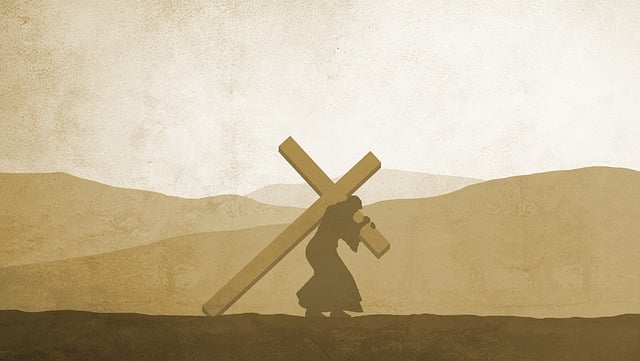Next week is often referred to as Holy Week because of all that took place within it. According to the Gospel writers, many events transpired within a very short span of time including Jesus’s weeping over Jerusalem, His Triumphal Entry on Palm Sunday, His clearing of the Temple, His teachings regarding His return, His Last Supper, His arrest, trials, and crucifixion, and His burial, all culminating with His victorious resurrection the next Sunday morning.
God willing, we’ll celebrate the resurrection a bit in next week’s column but there cannot be a resurrection until there is first a death and today we’ll spend a few moments thinking about what took place on what we call Good Friday. It was a very good day for us but a very painful one for Jesus. Celebrating Easter at the empty tomb without stopping at the cross on Good Friday is like the Jews celebrating Passover without horseradish to remember the bitter suffering as slaves in Egypt.
Although the crucifixion was clearly depicted in Old Testament Scriptures like Psalm 22 (1000 years before Jesus was born) and Isaiah 53 (700 years before), the brutality of what Jesus endured for you and me on the cross is beyond our ability to comprehend. Mel Gibson’s movie, The Passion of the Christ, vividly captured much of His physical suffering, but there is no way to fathom or depict the emotional and spiritual pain in Jesus’ heart as He took our sins upon Himself.
In the Old Testament book of Exodus, we’re told how the Jewish High Priest carried two stones on his shoulders that were each engraved with the names of the Israelite tribes. He symbolically carried the weight of all the people in those twelve tribes each time he sacrificed or ministered in the Tabernacle and later in the Temple.
In a similar fashion, Jesus took up not just the names of twelve tribes nor just the descendants of Abraham, He carried all of our sins to the cross that day. His cross was so heavy because it had upon it the names of every person who ever lived or who ever will live representing the sins each has committed, is committing, or will commit. He was literally carrying the weight of the world on His shoulders.
All four Gospel writers tell us how the innocent Jesus was executed in place of the very guilty Barabbas who was a rebel and a murderer. This too was foreshadowed in the Old Testament when the scape goat was set free while the other goat was sacrificed as a sin offering for all the people. Having all rebelled against God and having hurt other people we are each Barabbas. Yet we were released from Hell’s eternal prison when Jesus took our sins upon Himself and died in our place that first Good Friday.
Matthew tells us that when Jesus died, the ground shook. It had to when Eve’s Offspring finally crushed the Serpent’s head as foretold way back in the Garden of Eden (Genesis 3:15). As He stomped His foot and died on the cross, the weight of all those sins fell from His shoulders hitting the ground with a mighty thud that sent shock waves through all the universe. The curse of Adam’s sin was finally broken and new life in Jesus was now possible for all who would trust in Him.
We are eternally grateful for Jesus’ defeat of death on Resurrection morning, but before we rush to celebrate this eternally liberating truth, let’s stop at Golgotha long enough to ponder His suffering and death for each of us. Read again from Matthew 27, Mark 15, Luke 23, or John 18-19 and meditate on what great love motivated His great sacrifice. If you are able, attend a Good Friday service to let the reality of Jesus’ agony become real again. And then respond with love and worship of the One who so loved us. Blessings, George
